The New Fund Order
A Key MAN Misnomer: What if Neil Woodford was a Nina?

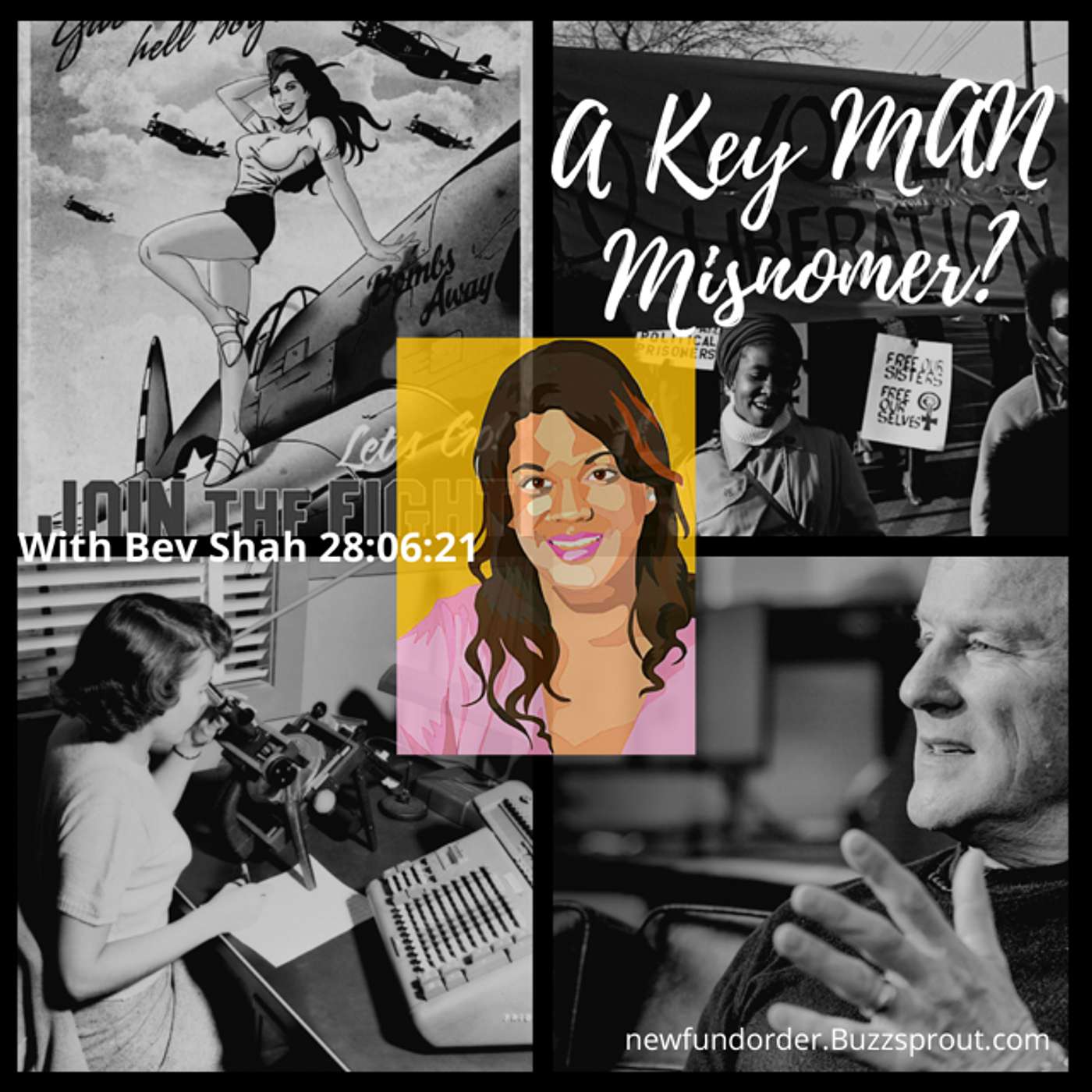
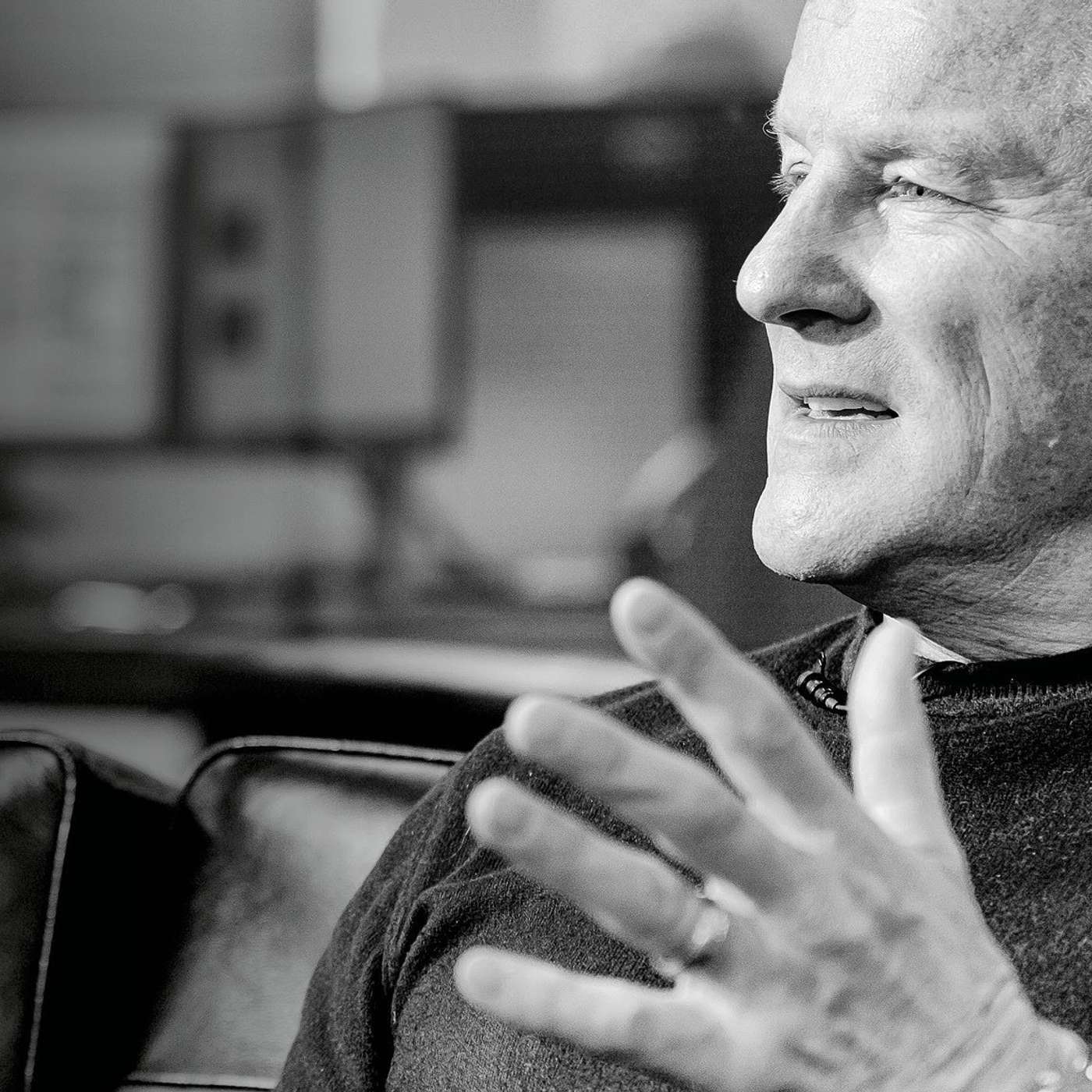

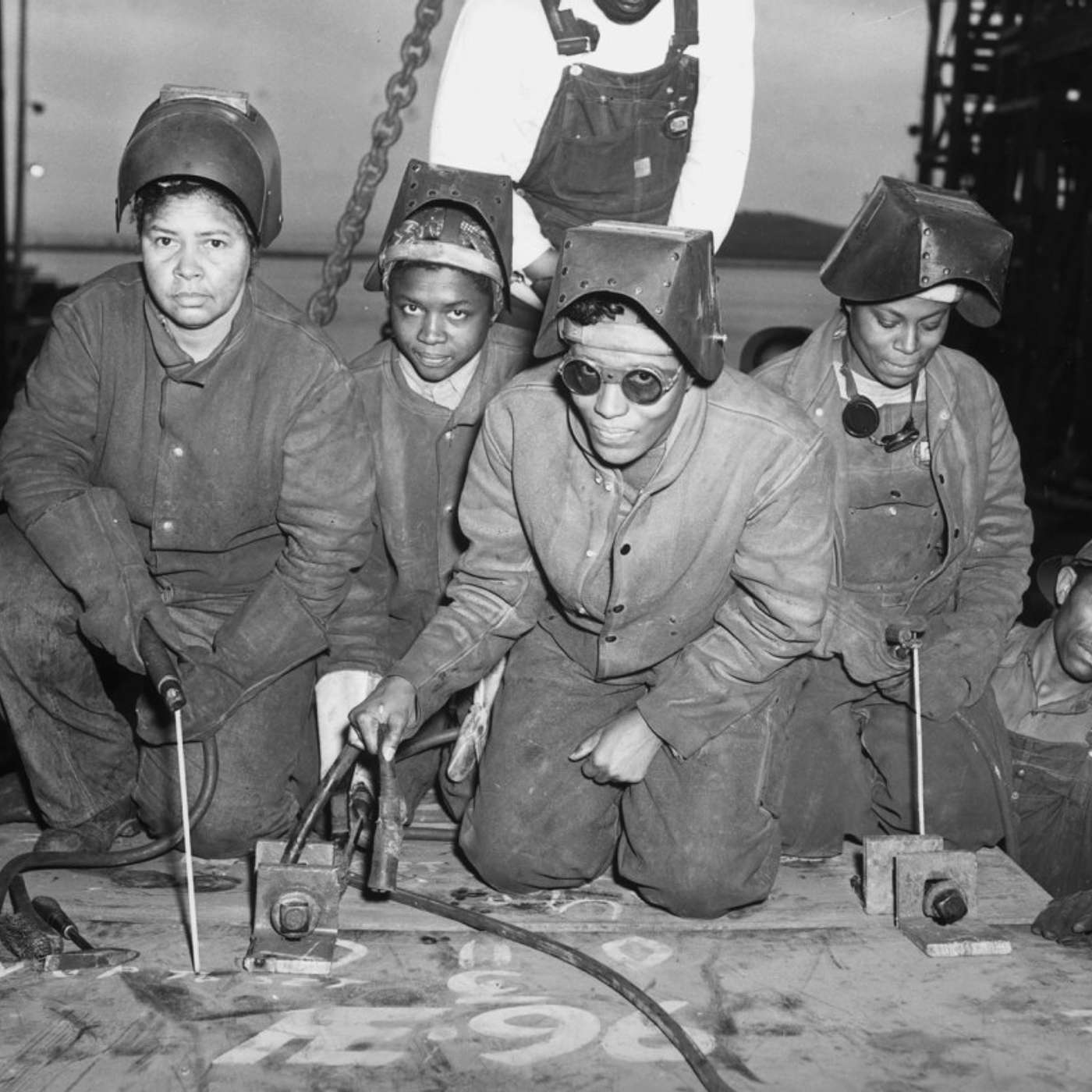



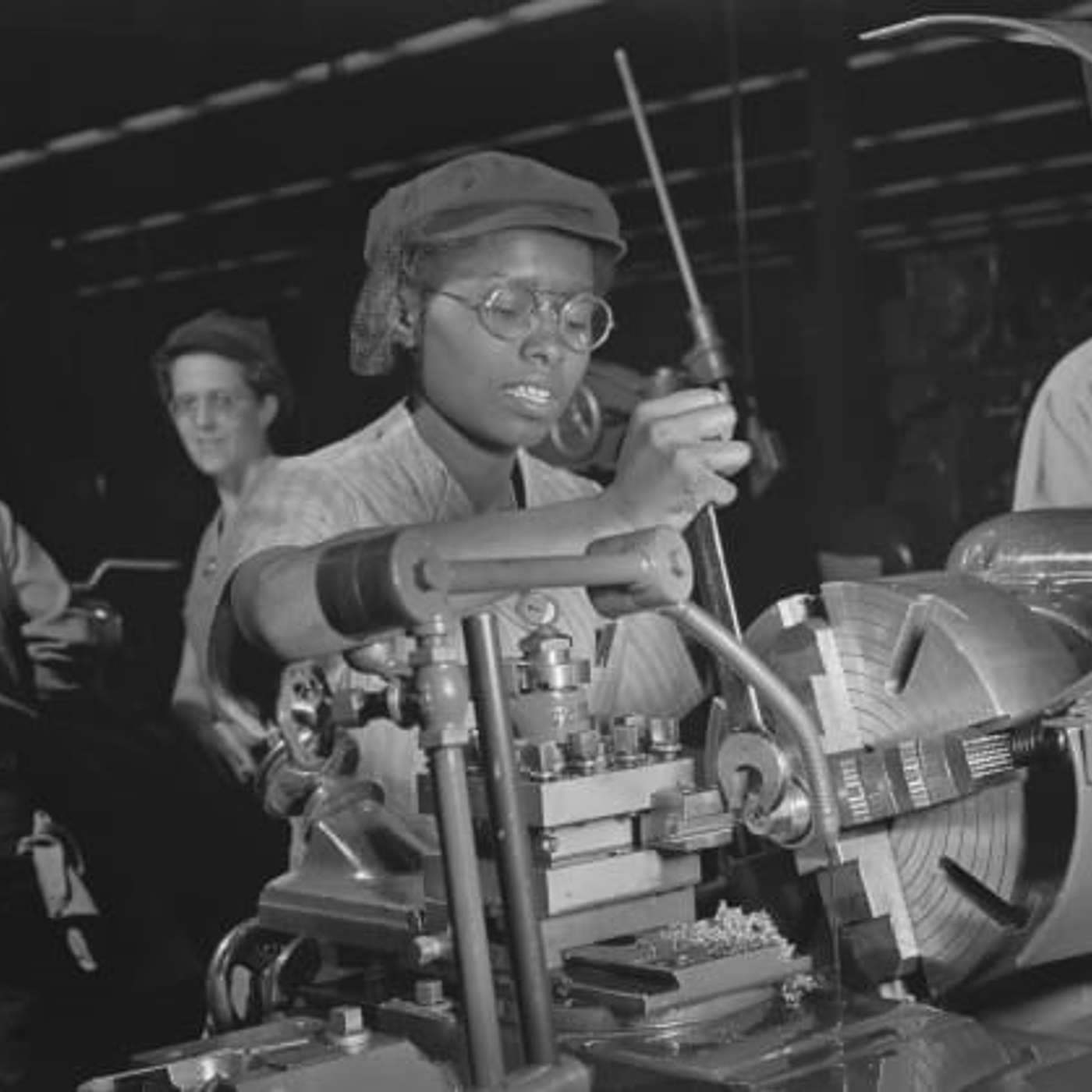
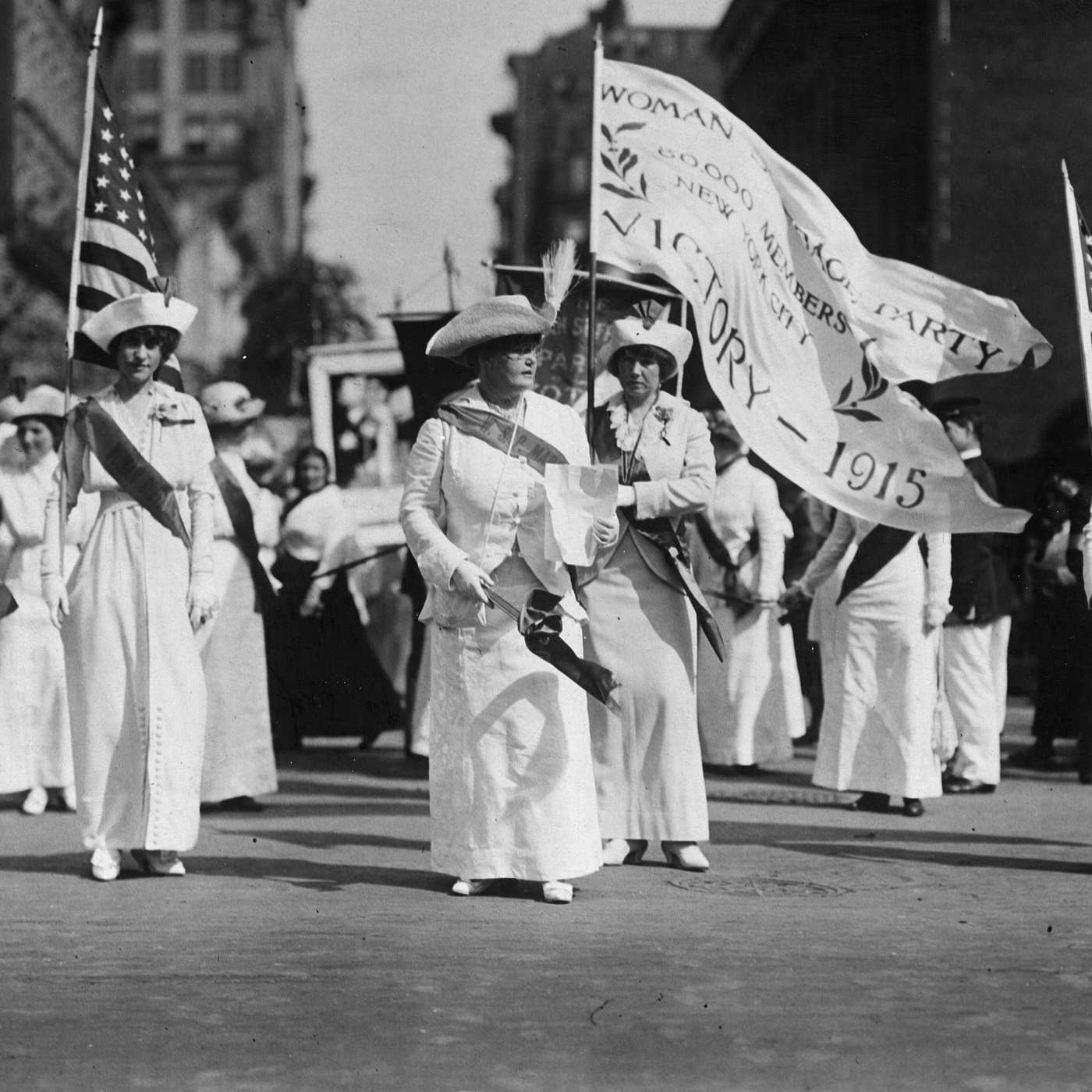



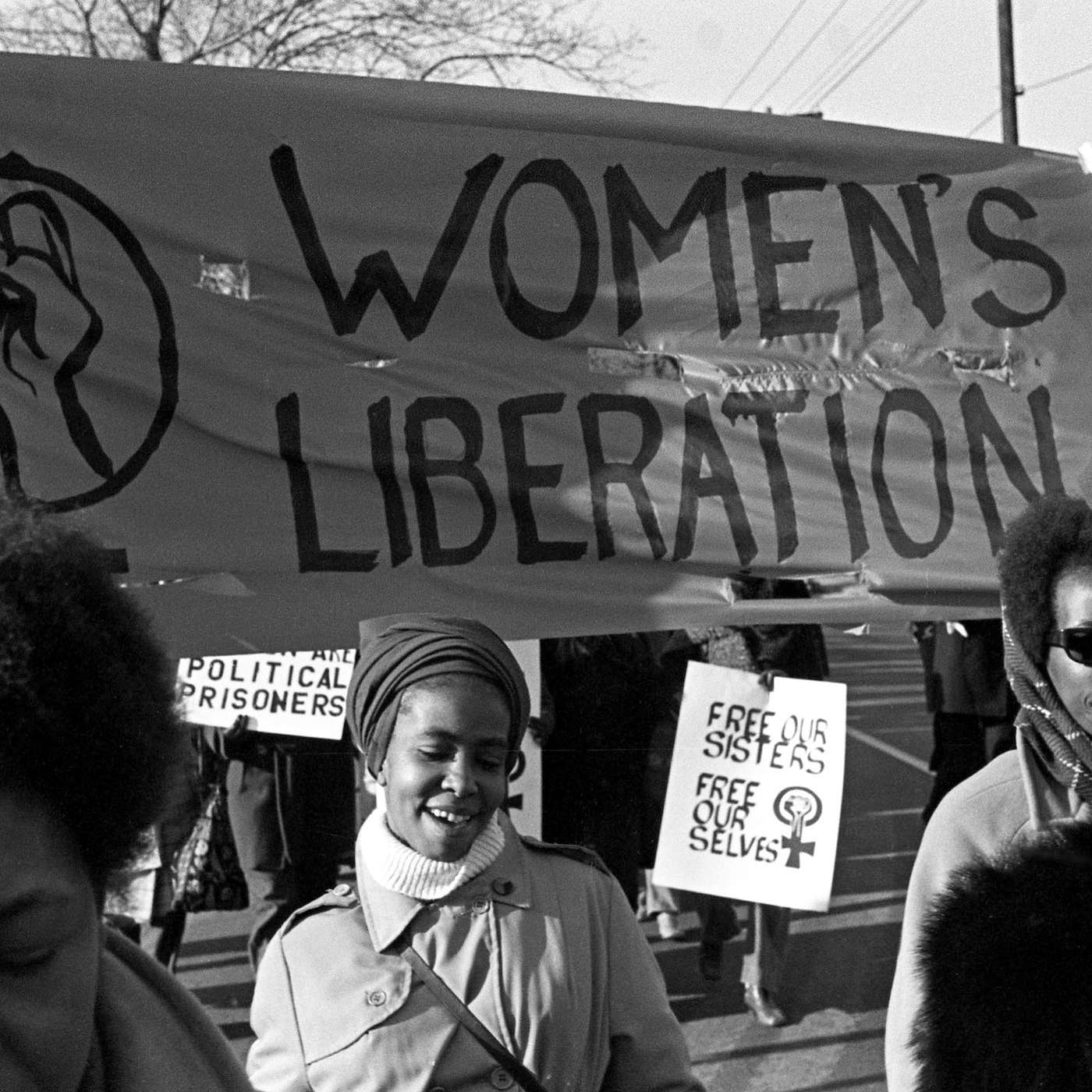
Welcome to the New Fund Order. An Orwellian journey into the Darkside, the Frontier and the Fringe of Finance.
In another special extended episode where we talk diversity and 'Women'.. and exactly what is 'their place' in asset management and how has that changed in 50 years of discussing gender equality? Is it all talk and ALL trousers?
How do fund selectors address the duality of ‘woman’ from the gender Diversity and Inclusion (D&I) point of view? We contrast the old and new in this gender-charged episode. I try to get beneath the corporate platitudes and diversity glitter, with City Hive's Bhavini 'Bev' Shah, as we explore the biases in fund selection towards women, discuss education in context to EQ v IQ, neural diversity, touch on 'Woodford' and debunk notions of key MAN misnomer or ‘MANager’ syndrome!
Together with left-field opinion, global market news and latest views, direct from my dystopian bunker. In association with my sponsor Allianz Global Investors (AGI) one of the world's leading active managers. My thanks to my guest Bev.. and you dear listener.
Please LIKE, SHARE and SUBSCRIBE. Please leave a REVIEW and let me know what you think and what topics you would like for future episodes. Until then... stay safe and.. keep it left-field!!
That's 20 episodes, 20 Guests, every 2 weeks...
Join the NFO Army Citizen, https://www.patreon.com/newfundorder
Left-field Finance.
#newfundorder
Credits:
George Orwell 'Nineteen-Eighty Four', Public Domain 1.0.
Audio clips: Public domain 1.0, Amelia Earhart 'The Future of Women Flying' and Gloria Steinem 'Address to the Women of America'. Source: Archive.org. Additional Sound effects by Soundbible.com. Creative Commons Attribution 3.0 and Public Domain 1.0. All additional Music used by Silvermansound.com Attribution 4.0 International (CC BY 4.0)
Active is: Allianz Global Investors.
Disclaimer: This post contains affiliate links. If you make a purchase, I may receive a commission at no extra cost to you.
Welcome to the New Fund Order. An Orwellian journey into the Darkside, the Frontier and the Fringe of Finance.
In another special extended episode where we talk diversity and 'Women'.. and exactly what is 'their place' in asset management and how has that changed in 50 years of discussing gender equality? Is it all talk and ALL trousers?
How do fund selectors address the duality of ‘woman’ from the gender Diversity and Inclusion (D&I) point of view? We contrast the old and new in this gender-charged episode. I try to get beneath the corporate platitudes and diversity glitter, with City Hive's Bhavini 'Bev' Shah, as we explore the biases in fund selection towards women, discuss education in context to EQ v IQ, neural diversity, touch on 'Woodford' and debunk notions of key MAN misnomer or ‘MANager’ syndrome!
Together with left-field opinion, global market news and latest views, direct from my dystopian bunker. In association with my sponsor Allianz Global Investors (AGI) one of the world's leading active managers. My thanks to my guest Bev.. and you dear listener.
Please LIKE, SHARE and SUBSCRIBE. Please leave a REVIEW and let me know what you think and what topics you would like for future episodes. Until then... stay safe and.. keep it left-field!!
That's 20 episodes, 20 Guests, every 2 weeks...
Join the NFO Army Citizen, https://www.patreon.com/newfundorder
Left-field Finance.
#newfundorder
Credits:
George Orwell 'Nineteen-Eighty Four', Public Domain 1.0.
Audio clips: Public domain 1.0, Amelia Earhart 'The Future of Women Flying' and Gloria Steinem 'Address to the Women of America'. Source: Archive.org. Additional Sound effects by Soundbible.com. Creative Commons Attribution 3.0 and Public Domain 1.0. All additional Music used by Silvermansound.com Attribution 4.0 International (CC BY 4.0)
Active is: Allianz Global Investors.
Disclaimer: This post contains affiliate links. If you make a purchase, I may receive a commission at no extra cost to you.
Clip 0:01
[Amelia Earhart 'The Future of Women in Flying'] 'Obviously, research regarding Technological Unemployment is as vital today as further refinements or productions of labour saving and comfort giving devices. Among all the marvels of modern invention, that with which I am most concerned is of course air transportation. Flying is perhaps the most dramatic of recent scientific attainment citations Dear citizens as we peer into the new fund order to discover the immutable truth for asset management and wealth managers.'
JB Beckett 0:38
The lowdown from the dark side, the frontier on the fringe of asset management and fund research
Clip 0:45
'In a brief span of 30 odd years the world has seen and inventors dream. First materialise by the Wright brothers at Kitty Park become an everyday actuality.'
JB Beckett 0:56
A podcast for wealth managers fund selectors, distributors and investors. Bringing to you the People's Republic podcast on Finance, in association with my sponsor Allianz Global Investors, capturing the latest market news views and interviews with leading minds in our industry.
Clip 1:15
'Aviation this young modern giant exemplifies the possible relationship of women and the creation to science. Although women as yet have not taken full advantage of its use and benefits, air travel is available to them as to men.'
JB Beckett 1:32
Allianz, Global Investors is one of the world's leading active managers.
And in these strange pandemic lockdown times, rest assured that all guests are calling in remotely
Computer 1:44
Interview.
JB Beckett 1:45
Hi, Bev, cognitive and cultural diversity are the buzzwords of our industry. But I wanted to better explore how much is boardroom platitude and spin? How much is real progress. Welcome to the new fund order.
Bev 2:02
Hi, JB, thanks for having me.
JB Beckett 2:04
it's It's a great pleasure. And I frankly think we're going to get into it today, which is a lot of fun.
So in a world where fund allocators want to balance all the risks and diversify their portfolios, why is there such poor diversity among fund gatekeepers? And why when we do the due diligence to the nth degree in all sorts of areas, but except in the, I guess, in the people agenda, why is that?
Bev 2:35
We've placed a lot of stock on conformity and uniformity of people. And we got very excited about certain asset managers who would claim to only hire from Oxbridge for example, that was kind of something that we we put down as a positive thing. We didn't really think about energy diversity and the robustness of investment decision making and the importance of having people who have different life experiences around the table to, you know, highlight, and point out the blind spots that were missing. You know, when I was a fund gatekeeper, I think most of the fund managers I spoke to didn't look anything like me. I didn't recognise that I, myself, am extremely cognitive, diverse, diverse, which gives me a different life experience. But I'm also dyslexic, and dyspraxic.
And the things that I used to see are often things that my colleagues didn't see. But those things we've never really valued. We've never, you know, differences make people uncomfortable. And the idea that actually, as an industry, if we want to come out with better decision making, we need to have people who look different think differently, is fairly new. So I think that this is something that really keeps should keep a chief risk officer up at night. You know, what's the biggest risk to your business is actually a group think, you know, as an industry, what do we make money out of our trained is decision making, it's kind of framing subjective judgments as objective judgments. And yet, historically, we were quite happy for everyone to have come out of the same channels of academia and life experiences.
That to me, you know, we're an industry of critical thinkers, right, gatekeepers meant to be analysts and thinking about all sorts of things and you know, he kind of you get quite asked questions about being underweight, overweight, buy something buy 1% currency or asset class or sector or whatever it is. Yeah, we don't question 'Why do I have a portfolio of people who all came from the same Universities look the same, same gender, all that stuff?'
So the last five years have been interesting because various organisations including city hive and diversity project and, you know, world social movements like hashtag Metoo, and black lives matter has brought the S in ESG to the forefront of the industry and the ideas percolating around cognitive diversity, you and I've had this conversation before about representation and cognitive diversity.
In my view, cognitive diversity is an output of representation and representative diversity. And representative diversity is an output of getting the system right, this idea of cognitive diversity is somehow kind of been latched on by the industry. And it really frustrates the hell of me that there's this sort of view that, well, we can just take the same group of people with the same backgrounds and, you know, as you say, the same ethnicity and the same representation, and somehow make them all think differently.
Like, somehow that's something that could be conjured out of a hat, you know, you could just create cognitive diversity. And there's this idea that, you know, we will, we call it, 'diversity garnish'. So we will, we will sprinkle, sprinkle visibly diverse people through your organisation, we will place will place a lot of things on their shoulders, the responsibility of changing things, and being the best and showing the others that we made the right decision by peppering the organisation people who look slightly different. And then we set them up because we say, if you aren't the best, you don't deserve your seat at the table. You and I have both worked in this industry long, long enough to know that there are many mediocre, maybe many, many mediocre people who work in it, but because they are, they visibly tick the same boxes as many others, you know, they can skate by and that's that's human nature.
That's, you know, this is not something sinister. It's all goes back to our caveman instincts or cavewoman instincts, you know, it turn to confirmation biases, and, you know, affirmation viruses and the halo and horns effect, you know, there's lots of viruses within us. And this is not just all unconscious bias, you know, stuff it's human nature. That's how we have survived as human beings. And as tribes, you protect yourself, you see yourself represented in, you know, other people you'll perform, they'll perform, and that's, that's natural, you know, you're balancing your risk out. And now we're asking everyone to challenge this. And one of the reasons why I don't believe this is purely a kind of siloed topic that an HR person or a D&I, executive, or one person on the board is told they have to do it, I think this is the responsibility of the 'gatekeepers', and it sits within the investment analysis process, because when you're asking about fund performance, or position or how a portfolio is constructed, and how it what a team is doing, we need to start asking more questions about the organisation itself, because that all feeds into the end product.
You know, having worked within an asset management company, and so have you, you you know, that the mechanics and the machine that is a fund that goes into creating it isn't just the small team of people who run it on a daily basis. And if you don't get to grips with the corporate culture, you know, you don't understand actually how that works, then you're missing a massive bit of the funds research. And, you know, just last year, we saw over the last few years, we've seen actually, asset management companies blowing up No, no names mentioned.
And, you know, if you're investing for sustainable reasons, you know, everyone's got on to the 'greenwashing' ..bandwagon, right, we've all got our green paint brushes out and everyone's using the language that we care, you know, 'carbon neutral carbon net zero'. 'Environmental, biodiversity'. That's the 'E', what about the as you know, there's lots of people who are talking about wanting to support equality, wanting to support 'Black Lives Matters', wanting to use their power word, to change things. But somehow there's a disconnect between that and the conversations around diversity and inclusion and corporate culture. And they all sit together.
And that's something that gatekeepers can ask about. Because it impacts their investment decision making, and it goes beyond the numbers. I think 'we', as an industry obviously love data, we know it helps justify our decision making. But corporate culture is not the same as parachuting in a few people onto your board who look different. It's not the same as deciding that today we'll launch and fund with a "diverse person", I've always thought, .. Well, if you're on camera, I would air quote "" that you know, and then market them.
Corporate culture is actually distilling the heart and soul of an organisation.
And it's not a new concept, you know, you can just go on on to something like the Harvard Business Review. And you'll see that these these ideas around the heart and soul of an organisation have been around for years and how do you distil that, and it's not just looking and asking for how many women do you have?
JB Beckett 11:07
And we'll certainly get more into culture through this episode. I want to just pull you back a little bit on 'risk taking' this I guess the sense that female fund gatekeepers, female fund managers make better money managers by their gender bias. I guess the first question for you: are you thankful that Neil Woodford hadn't turned out to be a 'Nancy Woodford', as a poster boy, for the "overconfident male", did Woodford just do the gender agenda? A great service?
Bev 11:36
Em? I don't know. You know. Because I can't see anyone, any company really investing in improving gender diversity? or putting their hands up to say, yeah, we've got it wrong. Um, what I think it did is he certainly highlighted key, putting all your you know, this 'key man idea' and, you know, just trusting some a-named manager, and it's back to corporate culture, and most of the industry are here, because we know, we're stewarding Mrs. Miggins' hard earned money, right. That's what we're here for. That's why I joined the industry, I wanted to ensure the financial futures of people.
I think this idea had, I love it the number of times 'God if I had a penny, but every time someone told me told me, a man told me that a woman can't take risk'. And that's why they can't be fund managers. I want my fund managers to take calculated risks. So I would be quite happy for a woman to run my money. And I want my portfolios to be diversified. So I want people who approach risk in a different way. And the other thing people will say after they told me that women can't take risk, because then they'll say, Oh, yes, but we we want to hire women. But we don't want to hire women who have just like the men you've hired, because that's what we've done in the past. And you kind of go well, they might have had the same educational background, and they may have gone to private school, or they may have gone to Oxbridge. But I can tell you now that my life experience from the moment I was born, as a woman, is different from yours' JB is a man, everything that was input into me. It's not just education, but how society treated me biology. puberty. The fact that I can, you know, create life, there's there's lots of things that make my whole journey different. And my whole outlook on life, different to the academia, that we may share.
JB Beckett 13:30
It's the classic card to demote a male isin't it - 'I can create life.'
There's no better way than to make a man feel insecure.
Bev 13:40
I tell you, and then apparently you can run money, and I can't because I can't take the risk. Well, I tell you what I bloody well can but I do it in a calculated way. So there's it's about the differences. And it's not the who can and who can't. Why would you want a 'correlation of one' in your portfolio of everyone is doing things the same way.
JB Beckett 14:03
I used to say to I used to say to colleagues that I was a better Risk Manager than probably a fund selector, you know, sniffing out the new talent. I think my strengths much more.. hinged in risk. Two things that comes from that. Why is there so few CHIEF RISK officers that are that are women because it feels like the would be as you say, that would be an instant way to bring a bit of diverse thinking perhaps into portfolio management. And then secondly, I guess, when we obviously observe the fairly small, still fairly small cohorts of female managers who go on to be very successful. I wonder if when we look at those kind of broad studies, when we're trying to compare exceptional female fund managers, or we're jumping to conclusions about the sort of traits that they all they'll then adopt?
Bev 14:57
I don't believe you can have a really significant study? Um, you know, I think you just have to open your eyes and be.. it's common sense. But you can't, how can you compare when what is it, it's less than 10% of fund managers are female, and of that only 4% of assets under management is run by women, right? So you know, from that number that, you know, if you just can't have a decent study on that, there'll be lots of things that impact it, like survivorship bias, and all the rest of it.
And then you put in the machine that is the asset management company that will be selling the distribution channels, the marketing, you know, of those people, right. So, if you know that there's no appetite. I mean, that's, that's the unintended consequence that we as gatekeepers created, we didn't ask the questions around 'But what happens' if we ask a few key man risk questions, but we never really tied them into this idea of maternity, or unbroken track record, we've never factored in that actually say much more goes into decision making. But human beings don't just switch off. You know, we don't ask questions around or what out, you know, fund manager x could who's a man could fall sick or be hit by a bus or go on sabbatical? It's always about that track record. So we've kind of perpetuated some of these through unintended consequences, or asking questions and having these biases that, you know that I just just reaffirmed constantly, because we aren't being sold. female fund managers, but then if you look further at the consequences, if you go beyond just, Oh, we've only got less than 10% of female fund managers. Look at our client base. Yeah, we aren't serving the entire population, which is what we should be doing as an industry. You know, investing and ensuring your financial future isn't just the high net worth elite people. This is for everybody. You know, if you're trying to level up and create an equal and sustainable society, we shouldn't be selling to everyone, we should be appealing to everyone we should feel represented. And yet we're not. So when you look at the numbers, like if you take this as a proxy for kind of their diversity gap in investment, the the gender pension gap, there's 100,000 pound difference in the portfolio of a 60 year old man, vs sixty year old woman, a private pension, you know, a woman retiring 51000 over 156,000 for a man. Now, of course, there are societal reasons why some of that happened.
JB Beckett 17:43
No, because it is an industry that, let's be honest, it was ultimately founded on elite principles, right? It was born out of merchant banking was, let's be honest, was the old boys club, right?
Bev 17:54
Yeah. So now now when we look at it, and if we want to change that, if we want to change it, not because it's the right thing to do, because Absolutely, it's the right thing to do. Because we want to have an industry that's still around, that isn't the runt anymore. And that we're not talking about someone in the C suite, wanting a legacy or an HR department changing things. I'm talking about strategically distribution teams going actually, in 10 years, if we want to grow our assets, we need to go here, because this is someone we've never looked before.
Then as as an industry, we're doing what we should be doing. We've just completed some research on the ethnicity investment gap. And it all, it all looks at what we as an industry can do. And it's and it's some of it's fairly simple. But if you just take data, for example, data that we know all companies tend to buy in to look at to figure out demographics and dynamics, we need to start questioning is that data skewed one way, which it is, by the way, you know, it's not sufficient, we need to ask I mean, I don't know if you're aware that: In the pharmaceutical industry, for example, most, if not all, medicine, I think most because some of it is aimed at women is is actually just tested on men and just dosed up for me. It's not tested. Women's anatomy is not thought of, they just think of us as a weight. It's the same for crash test dummies.
JB Beckett 19:28
Well, does that set the stage set the stage that the man who just basically, from a darkness point of view, just one step up from the crash test dummies? Or is it just easier just to get man to just to blindly jump into testing?
Bev 19:40
Well, it's the anatomy of the Test. Test is dummy. So the studies show actually, that if you're a woman and you have a car accident, you're more likely, you're a lot more likely actually to have an injury because they never tested you know, the airbags right on female anatomy. So that that's what the difference is. And that comes from the fact that probably most of the teams were men. So no one ever thought or what about the women, which is so it's not cynical. It's just people look at things from their own experience. And we saw some examples of this as a COVID. Like the government put out a one of those adverts right, stay home, stay safe. I think I posted it on LinkedIn and all the imagery, if you could just imagine the kind of the conversations you know, this guy must have ticked off by several departments. But the imagery just show like a man on sofa with his wife and child and dog. And then the other rooms in the house staying home or the woman doing their own schooling.
JB Beckett 20:35
It was horrendous. It was horrendous, but you know, it's gone into it's gone into the ministry and Hugh, Pugh and Barney, McGrew, Cuthbert, Dibble and Grub all signed it off. But people forgot to ask Susan, i
Bev 20:46
It's not they didn't ask Susan... Susan wasn't even in the room.
JB Beckett 20:49
Well Exactly
Bev 20:51
And given a vote, she would have gone 'huh what's this?' I mean, interestingly, with that picture, again, in an inauthentic way, they've made sure every single person is a slightly different colour, which, again, you just go well, that's not really how you do it either. So that's just one example. And our industry has, you know, they, they do the same thing. So if you just rely on say, your supply chain for them, again, this is where the gatekeepers can come in, start asking questions about the your asset management supply chains, who are you working with? Who are your partners, who is feeding in? Because if they still look like you and smell like you and all the rest of it, and those are the questions you want to know, to know, to ensure that you can change things, you know, if we just saw this week didn't we, what the output of yours in the in the alpha, the alpha fund managers?
JB Beckett 21:46
Oh, yes. That was quite a poster.
Bev 21:51
For me, it isn't it isn't. It's, it's not shocking, because I know that stuff, right? And, of course, there's lots of arguments that those managers are all brilliant, they're all brilliant, but what it says to me is, if you if you had a portfolio, and then at the end of it, when you aggregated everything, it all 'correlated to one' wouldn't you question the process, that the fund manager gone through in the methodology.
JB Beckett 22:13
So thinking about disruption and correlation to what and and it's interesting, you mentioned that. The other obviously, the other form of disruption that we've seen in our industry is asset concentration, into you know, super scale passives into index investing? Does investing in an index remove the gender bias question or our markets inherently patriarch? Is index investing, misogynistic?
Look, ...I said, I have some good questions for you.
Bev 22:47
You know, I, I'm still of the belief that every portfolio should have a mix of active and passive. And what I don't want to see is for active management to still be the place for men, the men's club, because that's what men can do. And then the ladies be handed the passive fund, because it seemed to be slightly easier, you know, thing to manage?
I don't know whether I can say that. I think index funds are 'misogynistic', whole industry is, quite frankly, so I'm not gonna put it on on them. But, But where some of the more retail index houses have succeeded is they do tend to appeal more to diverse customers? So, you know, again, if you're an active house, you need to think about why, you know, maybe it's because.. You are seen as the 'Woodford type chest beating alpha male' who is actually still of the 1980s mindset that 'greed is good'. I don't know,
JB Beckett 23:54
A bit 'Gekko'. I mean, funnily enough, we're going back to something you were talking about earlier. That's exactly, that aggressiveness that used to sometimes just reach itself over the table. My inner, my inner little, my 'mini me', my little selector would be just going 'get me out of here', you know, it'd be I would suddenly be you know, into flight mode and it was funny I tended to, whilst as pretty much every I think fund selector of our generation. I, I had a bias towards men fund managers, without even thinking about it, without consciously I don't know if it was because nine times out of 10 I walked into the room it was a male manager and that just that is what it is, is it my male conditioning? Perhaps, but in that funnily enough the behaviours I looked for, were many of these what are labelled 'feminine behaviours' in some of these kind of, you know, these studies, which was a more; reflective, deliberative, cautious approach to running money I found I always draw I was always drawn to that.
Bev 25:01
Look, I was the same as you? I think I, I, look, I'm an Indian woman, I never questioned it really, I didn't, I didn't have a bias towards female fund manager just because it was, like you say, if, if you're always being pitched, a male fund manager, if you're always, you know, if that's what's always out there, then then you start to they will maybe even when you start questioning, you start to say to us, I will, who am I? Who am I to question this lady? And then there are people who are far smarter than me, who must know better than me, and therefore, maybe they are right.
You know, I only really started questioning this, you know, after I left Aviva, when I started to really think about, actually, myself and how I think differently. And, you know, my being dyslexic and dyspraxic, I've always been the person who maybe doesn't write the best research note, but that's always written up after you've made the decision anyway, but actually put the spot something others could or, you know, I tended to place a lot more stock on my EQ ability. So you know, I was never, I didn't have the not gonna say the academic ability, but completing something like the CFA isn't in my frame of ability. My dyslexia and dyspraxia would just not you know, that that type of learning, as I particularly once I left University isn't something that you know, I can do, I struggle with it, it doesn't mean I don't have the knowledge. And you know, I started to question all of that. But we're getting to this point where we want everyone to look the same, everyone to have the same training, but we don't place any sort of value in soft skills, intuition, to our own eyes, our own eyes, like, we didn't you know, that whole thing. People are always like, Oh, you know, I've talked to your boss, you're the only woman in the room I've talked to on many panels. And I've heard many women and ethnic minorities, you know, Justin's talked about this being the only black guy in the room, I've been the only woman in the room so many times so many conferences, right, so many conferences.
Have you never thought, 'wow, there's 99 of us in here'. And we all look the same, that's the thing that gets me now, it's like,
JB Beckett 27:18
There'll be times you're at the conferences, they would actually have to actively dim the lights, because the shine off the bald heads was so bright.
Bev 27:25
I mean, when you walk out on the street, there's a mix of people, it's just like, did they not think it's odd that we haven't, unless you really believe that there's one tribe of people who's smarter than another tribe of people. And I really hope no one still believes that. You know, I think that's,
JB Beckett 27:45
I think there was a I think it was a misconception or some sort of kind of presumption that fund selection. And you know, what we did was akin to say where accountancy was, you know, 30 years ago, ie, that it attracted boring types. And that tended to be, you know, boring men. And there was always that kind of illusion. I think that was kind of conjured up, I'm like you, you turn up to a conference. And there'll be two very stark demographics, and one would be middle aged male fund selectors. And young 20 something females on the sell side, and I think the optics of that when you look back is, it's awkward, right?
Bev 28:31
Yeah. But what's what's interesting is like, I mean, earlier, you asked me about, you know, the gatekeepers not being as diverse as they should be. Or, I've always actually thought that compared to fund management, you do have a much more diverse cohort within the gatekeeper community, there are more women. But I think that stems from similarly to ESG investing or anyone in that kind of sustainable finance world, in that it was seen as the poorer cousin to being the equity analyst. So I mean, that that's how I ended up in funds research, you know, I was I was at HSBC investment management and the boys got, you know, direct equities or fixed income to look at and the girl was got handed, they're kind of like the funds and because it's not seen as the really kind of sexy side of things is it, not the right and..
JB Beckett 29:33
look at, look at the bright side. You didn't get bonds. I mean, that's a bullet dodged right there.
Bev 29:39
Well, look, I love I think, for me, the moment I was handed funds, I found my thought and I just thought this is something that actually goes beyond the numbers. This is this is using your EQ and your analytical skills. And I think this is where gatekeepers need to just remind themselves that we are meant to be analytical, critical thinkers.
Look at your blind spots in your process, ask yourself how have I added to this problem that led me to build a portfolio that is correlated to one, when you look at the demographics? This isn't it's not as simple, unfortunate, I'd love to say there's a formula to this, I'd love to say it's as simple as sprinkling your portfolio with diversity garnish, but it's not, it's it's a bigger thing. And it's ensuring that if you do check, whether you change in your process, look at it from different angles, focus group it, ask other people who don't look like you, because they will tell you and that's partly why we actually put together the, the kite mark that we're working on.
JB Beckett 30:46
Yes.
Bev 30:47
Because we wanted to be able to help the gatekeeping community and actually the the length and breadth of it. So from the asset owner side, all the way down to your financial advisor in Truro, you know, everybody to be able to kind of, at a glance, see the heart and soul of the organisation. You know, there is no point investing in an impactfund if that organisation isn't doing much more than that, right? You know, it's no point pushing the rest of the world and the biggest companies in the world to do better. If as an industry, we're not doing better.
So that's why we put this together to help gatekeepers, do some, you know, start the process in the same way that I suppose things like signing up to the PRI and reporting. They're set off the kind of.. ESG kind of side of things for gatekeepers. And in fact, my co founder at City hive was in the leadership team at the PRI. So she's fully aware of what sort of data needs to be collected. And I know that I'm fully aware of what gatekeepers need to need to ask. So we're very much looking forward to that putting the 'cat amongst the pigeons'.
JB Beckett 32:12
Well, I think I think I think your points to education are absolutely spot on, I had a question actually leaned up actually about, you know, why is there so much emphasis placed on the narrow bounds of IQ over EQ and, you know, someone is involved on the training side, it is very difficult to change the structure of, you know, exams and qualifications. And I think you're right, I think, you know, that I think there's a call to action there for the CFA and the CISI to your step back and actually try to maybe rethink how they're trying to educate because that it just sets things in motion right from the get go. Right, your next your next interns, your next your next crop or entrance into the industry, all thinking, like, you know, like the automatons, you know, like, you know, this assimilated Borg, you know, they're all kind of got the same thinking. And I think, you know, we want to inspire different, different ways of thinking, I think in our industry, I think you're right, I think it would lead to, you know, a heck of a lot of better outcomes if we got that.
I would set the commend to you to follow the work of Tom Chatfield, he was he was the guest previous guest actually on the show. And has one of your one of his books is actually called 'critical thinking', which actually is directed for university students to how to apply critical thinking into their studies. But I tell you, I would I would make a young fund analyst read that every day of the week, frankly,
Bev 33:33
You need a handful of people who've got those qualifications, of course, but you also need people who can read people, I was always biassed towards understanding fund managers motivations for doing what he was doing. Or I say he was mostly he, you know, I particularly used to use the walk to the elevator as the time to try and pick up on little bits of information and motivations. Because those, those things, you know, pick up on them tell you a lot more or give you an insight into how someone's mind works, you know, what is the catalyst for them to make a decision? And it isn't the spreadsheet they use? It isn't the screening thing. It isn't, you know, if that was the case, you know, no, no, no ad agency would exist you know, it's, it's about appealing to human nature, and I think that's where we need to get to is so largely you need a matrix of different people and different flavours and different attributes.
JB Beckett 34:30
I sit on an oversight panel for for a student investment managed fund and a great process it is too, it's an education it's, it's a learning process. My observation is being that quite often the best analysis and pitches are from the female members of the team. But the fund as a whole struggles to attract female talent into the into effectively into the club in the first place. And when it comes to the the elections for the senior positions within the club. It's always, it's always the guys that put themselves forward. And the other thing I would observe being again, I would say the the analysis, qualitative analysis and presentation are better from from the female members. But those cross examination sessions, you know, when one side will play devil's advocate, or they'll effectively try and you know, punch holes in each other's argument, there the the man are far more gusto and far more willing to, you know, to really go for it. Whereas, typically, the the women members of the team are less aggressive in arguing the case. And again, I think in our industry, we confuse ability to argue with ability to analyse.
Bev 35:52
That's, that's exactly and what we need to question is not we need to get these women and girls arguing better, is actually we need to look at the devil's advocate process, like how do you change the process to give everyone an equal voice? Yeah, there'll be lots of men who don't want to speak up,
JB Beckett 36:12
Right
Bev 36:13
So it's don't change the people change the process to get the best out of them? You know, of course, of course, you know, girls don't necessarily want to join the industry, because they don't see themselves represented on it. There's other there's other industries, you'd go to that you kind of think I'd rather be there, or there's a big rise in the entrepreneur side fwomen, a lot more women are starting up businesses, because actually, they know if they want to succeed, they've got to do it themselves. And actually, you know what, the capital isn't there, no one penny to every pound goes to a female run business, I always joke and I'm probably shouldn't say this on the podcast. But I always joke that if I was a white man running City High, I would have retired by now.
Because the asset managers would have all written me a check and patted me on the back. And because I'm not I am no closer.
JB Beckett 37:11
But because you're because you're a woman that basically write you a much smaller cheque and try to pat you on the head,
Bev 37:16
Oh, God, I wish they would write me some more cheques,
JB Beckett 37:18
I hope, hopefully just pats you on the head. Let's not get into that.
Bev 37:22
Everyone loves what we say and love what we do, and see the benefits and see that we're working to make the industry better, but seem to think you know, but again, it just comes down to that thing where we've never questioned it. That's the bit where things have to change that's the bit the gatekeepers can then get into the meat have to ask what's your due diligence and support. Yeah, because none of this is going to happen overnight, and everyone has to pull it together.
JB Beckett 37:49
Right.
I watched I watched, I watched recently the the 'Margin Call' again, which came out in 2011, originally as part of a film club, and so it's a great opportunity to watch again. Now that was a that was very much a story of risk-taking and over-leverage, and of course, the financial crash. When we delve, therefore, further into culture as a word in asset management. And it gets, you know, that gets bandied about freely, can you tell me more about your ACT rating. And you know, how is that really, you know, peering into agile culture within asset management?
Bev 38:21
So what we've done is we split it out into different pillars of behaviour, and have tried to align external, external behaviours, demonstrations and engagement with internal patterns of policies and structure with each of those pillars of reporting being the responsibility of someone on the board. So therefore, it's not just handed over to someone in a corner, those four pillars should hopefully help a funds analyst see whether those top line values that a company purports to have, are actually being lived in every area of the business. So whether it is their external stewardship engagement, whether it's their investment process, whether it's their, how they demonstrate what they do, whether it's internally with their own staff, because that's a big thing, or how they engage with talent and securing that talent. The second layer of the Kitemark is the verification. So what what we didn't want to do when I was looking at this was we didn't want to create something where we have an analyst team that goes out to do qualitative research and comes back being influenced by their own biases. And so the verification process, in my opinion, anyway, is quite beautiful. You tell us in the first stage, what you're doing under all those pillars, and then we'll go in ask your staff, whether you're doing those things. And that's, you know, it's like coming out of the mouth of babes, isn't it a totally independent staff survey which will reach your entire organisation and allow people to tell us whether it's true or not,
JB Beckett 40:01
I mean, there's so much tone tone from the top. And yes, it is important. But it could be that huge disconnect between the tone from the top, the people on the floor. And of course, this big fuzzy thing in the middle that we call middle management, right. And there's, there's an anecdote I'd share that a certain chief executive of a very large clearing bank in the UK, and I won't name names, but people probably be able to guess who, did a tour, you know, did the sidewalks walk to the floor, you know, they're going to the PR press opportunity.
Middle management basically specially leads brand new carpet tiles to follow the path of the chief executive. So he so he felt he was walking in a nice new shiny office and everyone's well. And even the people at the desks were curated as to who would be available, should the chief executive want to just go over and you know, talk to them. So there's this huge kind of filtration that goes on at the hands of middle management that I think basically creates this disconnect between what the top brass think and what's actually happening on the floor.
Bev 40:58
Well, of course, and you know, what, what do we do we promote people because the structure says, if you're good at your job, from a technical point of view, we're going to give you another job that's got nothing to do with your skills, by the way, not technical, you're going to manage the people who do the technical be that you are good at. But that's the only way for you to get paid promotion, and get paid for, you know, managing people is a skill set in its own right, you know, you unfortunately, can't just put people on a course to go and learn to do that some of that plays into for example, EQ. I've always joked though, I've managed to swerve, managing people because I managed money, because I never wanted to, but now I manage people. And I think I'm actually right.
It is that disconnect, you know, you can't just rebrand your business and take out the vowels, and make people believe it's a different business, when you've got five different cultures sitting underneath it, no names mentioned ahem, because that's not going to change. And what we want to do with the kite mark is not damage the industry, right? Because I, I firmly believe that us ensuring that everyone's financial future is assured, and more people engaging with us is what we need to do to future proof our industry. We don't want to damage or we want to do with guide. So if your organisation isn't hitting one of those pillars, we've basically given you a roadmap on what you need to fix. And what we've created is a maturity matrix. So on day one, as an organisation goes through the ACT programme, and fills out their reporting standards, they will hit a certain level, but in three years, they are expected to have moved on, which is you know, exactly how it should be. But we want everyone to be on the same level. And it's not. It's not painting by numbers it again goes to the heart and soul. Are you living and breathing? what you're telling people is is, you know, it's...does that does it do? what it says on the tim, right? You're saying you're all about integrity and stewardship, and blah, blah, blah, but you're not doing these other things.
D&I is the essence of ESG. Right. Let's not forget that. If you know, there's a big focus going on around Yes, DNI and the lack of gender and the lack of efficacy is the flip side of that horrible topics we have to talk about. It's racism. It's, it's homophobia, it's misogyny, sexism is sexual harassment in the City that's been covered up year on year,
JB Beckett 43:42
I wanted to finish with therefore a call to action. And I think my call to action is this. If we expand therefore the idea of social equity, the S in the ESG. And thereby let's be honest, what we're asking here is for a group, a cohort of mass middle aged white males to release some of their grip on power, are we better to therefore view them as the enemy or as allies?
Allies. I don't think I don't think this is not about releasing the grip of power. It's opening up your mind a little bit. It's being open-minded to the fact that you don't have all the answers, that you do have blind spots, you know, going back to those school days where you think, Oh, actually, I do need to be educated. You're not being told off because you're a white man. It's not your fault, right? You are part of a system. And you took the opportunities you were given because you're part of a system. But I would like to think that allies, white male allies are the ones that can change on mass, because we're not taking anything away from you. We are just giving you an opportunity to have a legacy, you know, to look back and say, Oh, yeah, actually I left the industry. And this is what I did. I changed it for the better and because it change it for the better and it looked different. It means more people invested and more people had, you know, a better life. That's what I'm saying. I was Oh, no, I was actually saying when people ask me about city diversity, I was created for the white man.
Bev 45:17
You know, it's that better idea. There's cognitive diversity. That's what it's about. That's my call to action. My other call to action to any gatekeepers, and if they want to be involved within the consultation of the Kitemark. They're very welcome to.
JB Beckett 45:29
I love the idea that City Hive was was developed for the white man, you can always have, like, you know, you know 'mysoginist line', you know, so a white man can phone you up 'I'm john, and I'm suffering from mysoginy. Can you can you help me?', you know, and just have a listening ear at the other end, I love this idea that was,
Bev 45:50
Let's be honest, as white men they need help, my husband is a white male, I talk 'at him' about it, and if he grunts and rolls his eyes. I know I'm not on the right track. What we need to do is we need to is exactly that is is that, a reminder that this is not about a fight that's been happening on Bishopsgate where we're going to line each side: diverse against the majority or whatever you want to say, you know, white men against other people. It's not that it's actually a little bit more. It's nicer. It's like, yeah, it's a bit kumbaya, right? It's like, let's, let's create a nicer world where we can all thrive and actually make more money, because we will raise more assets. And we will be doing the right thing and stop emailing me to say that you're trying to hire women? And can I help? Because I can. But um, you need to change the system? Because why would you join this industry? Why would you stay if you don't go insane?
JB Beckett 46:51
Well, it feels like the system has to at least resolve and create some sort of equity, at least on an agenda, and on on an ethical level, because the industry is also rate of a social class war, which is also also exists and isn't being addressed,
Bev 47:08
It is being addressed that so we're part of the City of London taskforce looking at social mobility. But what I would say is, if you change the system and focus, for example, on gender alone, the scaffolding you put in place to support 51% of the population will trickle down, or more than trickle down actually, will support everybody.
Bev 47.45
don't go down the rabbit hole of 'oh, but there are other vectors of diversity, there are lots of vectors of diversity, right? And some are visible and some aren't. But if you focus on the biggest one, and the scaffolding in the in the structure, the support that you need to put in, it will benefit everybody. And then we can start to unpick the more nuanced stuff.
JB Beckett 48:09
Let's, Let's finish on a high which is my rapid fire round, 10 very, very, very easy questions, Bev I'm sure you will race through them with with with glee. Let's get us started on Question 1...
Bull or bear?
Bev 48:29
Bull.
JB Beckett 48:30
Question two, Bogle or Buffett?
Bev 48:33
Buffett.
JB Beckett 48:34
See this is dead easy? Right, this is easy.
Question three, profit or planet?
Planet?
The majority, the majority of people answer that question like a question. They're like, profit? or planet?
Bev 48:53
My heart says one and my brain says enough.
JB Beckett 48:56
Exactly. You can only pick one. I'm sorry.
Bev 49:00
Yeah.
JB Beckett 49:01
Question Four divest or engage,
Bev 49:05
Engage.
JB Beckett 49:05
Question five, lower cost, or better value?
Bev 49:09
Better value.
JB Beckett 49:11
Fund selectors always tend to pick better value? It's interesting.
Question six supertankers or boutiques?
Bev 49:17
Boutiques.
JB Beckett 49:18
Question Seven star managers or team players?
Bev 49:22
Team players.
JB Beckett 49:23
Question eight, public or private?
Bev 49:25
Private.
JB Beckett 49:26
Question nine, high growth or stable income?
Bev 49:29
High growth. I'm too young for stable income.
JB Beckett 49:34
And, and plus, it's about 3.1%. I think at this moment is about all you can get. And question 10 which is my favourite being a lefty... socialism or free markets?
Bev 49:46
I live in Corbin territory, so..
JB Beckett 49:48
Better be careful.
Bev 49:51
I'm in the middle of a mixed economy. I can only pick one and I'm going to go social!
JB Beckett 49:57
and that leaves us just with the the bonus round if you can pick a number between 11 and 40
Bev 50:04
35,
JB Beckett 50:05
Oh question 35 books, or internet?
Bev 50:09
Books.
JB Beckett 50:09
Books. There you go. And that marks the end of the of the interview and just wanted to say, Thanks very much, Bev. This is a, this is a subject I've been wanting to talk about. You're absolutely the right person to talk about it. And hopefully we've we've got into a little bit more than just those you see, just the usual corporate platitudes. I just want to say thanks very much.
Bev 50:34
Thank you very much for having me, JB, I really enjoyed it. Thanks. Great fun.
JB Beckett 50:38
Thanks, Bev.
Please don't forget to like and share and subscribe you know, click the subscribe button, a new podcast every two weeks with a new guest. Stay tuned.
A big thanks to you, dear listener for tuning in. Brought to you by my sponsor, Allianz Global Investors. A warm thanks to today's guest. Legally, I am compelled to remind everyone that all views of this podcast are independent and did not belong to any affiliation or organisation. Just in case that was in anyh doubt.
Tune for the next podcast every two weeks from the new fund order. Please subscribe, share, like and comment, let me know what you think what you'd like covered here in future episodes, Until then, stay safe and keep it left field!
Clip 51:29
[Glorian Steinem address to the 'Women of America congress] 'This is no simple reform. It really is a revolution, sex and race because they are easy visible differences have been the primary ways of organising human beings into superior and inferior groups and into the cheap labour on which this system still depends. We are talking about a society in which there will be no roles other than those chosen, or those earned. We are really talking about humanism...'
Transcribed by https://otter.ai
